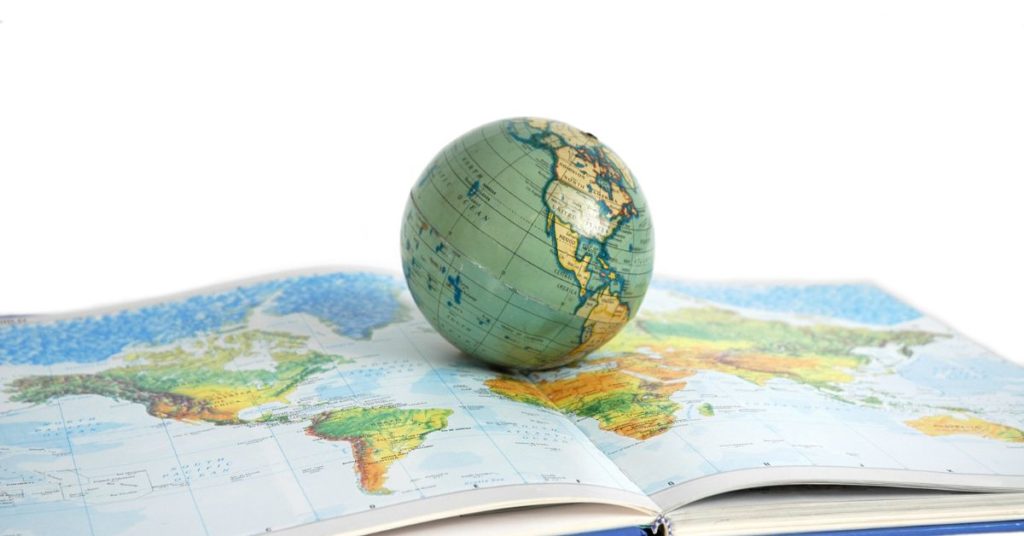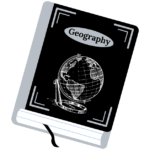Nov 16, 2023
You Need to Know More about Geography – Take a Look Now
ResourcesSites

Geography is a point of diligence for many projects. While most people don’t have an extensive background in geography and related topics, there is a wealth of online material relating to geography.
The Diligence File is opening its collection of resources and sharing some suggestions for where to start looking for useful materials for use in your diligence projects.
“Geography is the study of places and the relationships between people and their environments. Geographers explore both the physical properties of Earth’s surface and the human societies spread across it.“
The Start
This post is a companion post to – You Need To Bring Back Geography which focused on the importance of geography for diligence and the fact that as important as it is, few people are trained in geography or even understand the definition of geography. If you haven’t looked that post I urge you to do so. If you have, or just want to get right to links for some useful sites, that is what this post will focus on.
To begin a recap on why geography is important for diligence. Geography is:
- A basic organizing principle for finding and retrieving information, such as in a database.
- The foundation of various risk assessments such as country risk and political risk.
- A business factor as relates to markets, customers and investment.
- A legal basis and a critical concern relating to laws, including global sanctions, conflict minerals, anti-money laundering, privacy, cyber security and anticorruption regulations.
- A key element in reference to Environmental, Social and Governance (ESG) matters.
- Relevant to important mission and value issues including climate change, ethics and integrity.
- It relates to avoiding criminals, cyber risk, fraud and other illegal acts.
- A diligence focus, for example if you are performing diligence on a country, region or specific real estate or if natural resources, climate.
Geography content may not be taught much in school but there are a multitude of online sources that you can use or incorporate into your diligence processes.
Types & Subject Matter
Online resources are available in written, oral and visual formats. Moreover, it is now possible to interact with geographic subjects in real time through satellite imagery and publicly available cameras.
The subjects are too many to list but here are some examples of geographic information commonly available online both current and historical:
- Maps
- Statistics
- Natural Resources
- Climate and Environmental
- Country Assessments on a range of topics including corrupt
- Government and Political Information
- Economic Data
- Cultural Material
- History and Formation of places as well as landscapes and cultures
Sources
Sources of geography materials include:
Supranational and National Organizations – These are organizations such as the United Nations, International Monetary Authority, World Bank, European Union
Government Websites – most governments have a centralized web portal for their various sites or there are individual addresses by department or type
Nongovernmental Organizations and Associations and other NonProfits – these are
Academic Entities – for example, universities and schools
Private Companies – There are numerous private entities that publish free geographic related materials for example, the large audit and consulting firms, shipping and other transportation and logistics related companies
New Sites – news websites such as the BBC offer information grouped by geographic topics
Individuals – there are individuals that are passionate about topics relating to geography and share their knowledge and expertise with others.
To get you starting and thinking about helpful material, here are is a selection of sites from the Diligence File Collection.
Selection of Geography Sites from Diligence File Collection


Country by Country
Information relating to a specific country is often found on sites: (i) of the organizations that the country belongs to such as a supranational organization, (ii) a country’s government websites, (iii) country information provided by third party countries, (iv) topic related assessments by an organization or country, (v) private interest or what I refer to as hobbyist sites and of course (vi) news sites. These are examples of some of these types of sources.
United Nations – https://www.un.org/en/about-us/member-states
International Monetary Fund – https://www.imf.org/en/Countries
List of Foreign Governments – https://libguides.northwestern.edu/ForeignGovernmentList (compilation of links)
US Department of State – Countries and Areas – https://www.state.gov/countries-and-areas-list (third party list of country info)
Transparency International – Corruptions Perceptions Index – https://www.transparency.org/en/cpi/2022 (country assessment on a topic by private organizations)

Societies & Associations
If you are interested in understanding the field of geography including the relevant topics and available information, societies and associations are a good place to start. These organizations offer a combination of expertise, practical information, and additional sources and links that are helpful at various levels. Geography is global and it is local. For local information look for societies and associations that specialize in the geographic area, region, country or topic that is relevant to your project.
International Geographical Union – https://igu-online.org
American Association of Geographers – https://www.aag.org
American Geographical Society – https://americangeo.org
National Geographic Society – https://www.nationalgeographic.com
Royal Canadian Geographical Society – https://rcgs.org
Royal Geographical Society – https://www.rgs.org/geography

Maps & Atlases & Satellites
Maps and atlases are traditional tools of geography and the web has plenty of sites with current and historical maps and map related information.
The web is also a platform for access to geographical information from satellites imagery. Some of it is in real time. There are also access portals for imagery from physically placed cameras.
National Geographic Map Hub – https://www.nationalgeographic.com/maps
World Atlas – https://www.worldatlas.com
Google Earth – https://www.google.com/earth/index.html
EarthCam – https://www.earthcam.com/
Google Maps – https://www.google.com/maps
Library of Congress – Collections with Maps – https://www.loc.gov/maps/collections

Culture
Geography and culture overlap in a number of subjects. These are a selection of sites that address concepts around culture and geography as well as the overlaps between specific topics. The sites are starting points for defining and researching the topic that is relevant for your diligence project.
Dartmouth Library – https://researchguides.dartmouth.edu/human_geography/cultural (list of sources for cultural geography)
National Geographic Society – https://www.nationalgeographic.com/culture
Google Arts & Culture – https://artsandculture.google.com
UNC Department of Geography – https://geography.unc.edu/research/culture-society-and-space

Statistics
Statistics relating to countries and regions are available in publicly accessible online databases maintained by organizations such as the United Nations, World Bank, International Monetary Fund and similar organizations.
Countries also maintain their own online statistical sites with geographic related data. Another source for finding specific country resources are universities. And while there are private companies such as consulting firms and private information/data suppliers that compile this type of information access is usually restricted and there are charges.
UN Data – https://data.un.org
World Bank – https://data.worldbank.org/country
USA GOV – https://www.usa.gov/statistics
University of Wisconsin – Country Statistical Yearbooks – https://researchguides.library.wisc.edu/yearbooks
US Bureau of Labor Statistics – Statistical Sites on the World Wide Web – https://www.bls.gov/bls/other.htm

Learn More
If you are interested in understanding the field of geography, many of the resources in the different sections of this post will be helpful.
If you are looking to create a specific learning experience for people in your organization take inspiration from the various online resources that specialize in geography teaching materials for all levels of knowledge and experience. Here are a few examples, to spark your imagination.
Geographical Association – For Geography Teachers – https://www.geography.org.uk/
PBS LearningMedia – https://ny.pbslearningmedia.org/subjects/social-studies/geography/
National Geographic Society – https://www.nationalgeographic.org/activity/guess-the-place/
TedEd – https://ed.ted.com/lessons?category=geography
Places Journal – https://placesjournal.org/explore-places/geography/
Evaluate & Verify
Evaluate – This is a post about how geography related websites may be useful sources of content for diligence projects so treat these sites as you would any other source. Meaning, if you find a site that you think has useful content, evaluate the publisher, the author (if one is provided) and the material and make a decision if the source and the material are right for your diligence project.
Verify – If you have any doubts, verify. For example you would want to verify if:
- you have questions about the knowledge level or expertise of the organization, the publisher or the author
- the quality of content appears questionable
- the content does not seem complete
- you remain unsure, skeptical or uneasy about the quality of the content, advice or other information provided.
Verifying means you look for other sources to confirm what you have already found. Don’t hesitate to verify if you have doubts.


Subscribe for Diligence Updates
Get the latest updates, resources, offers, and more.
"*" indicates required fields
The Diligence File respects your privacy. Privacy Policy